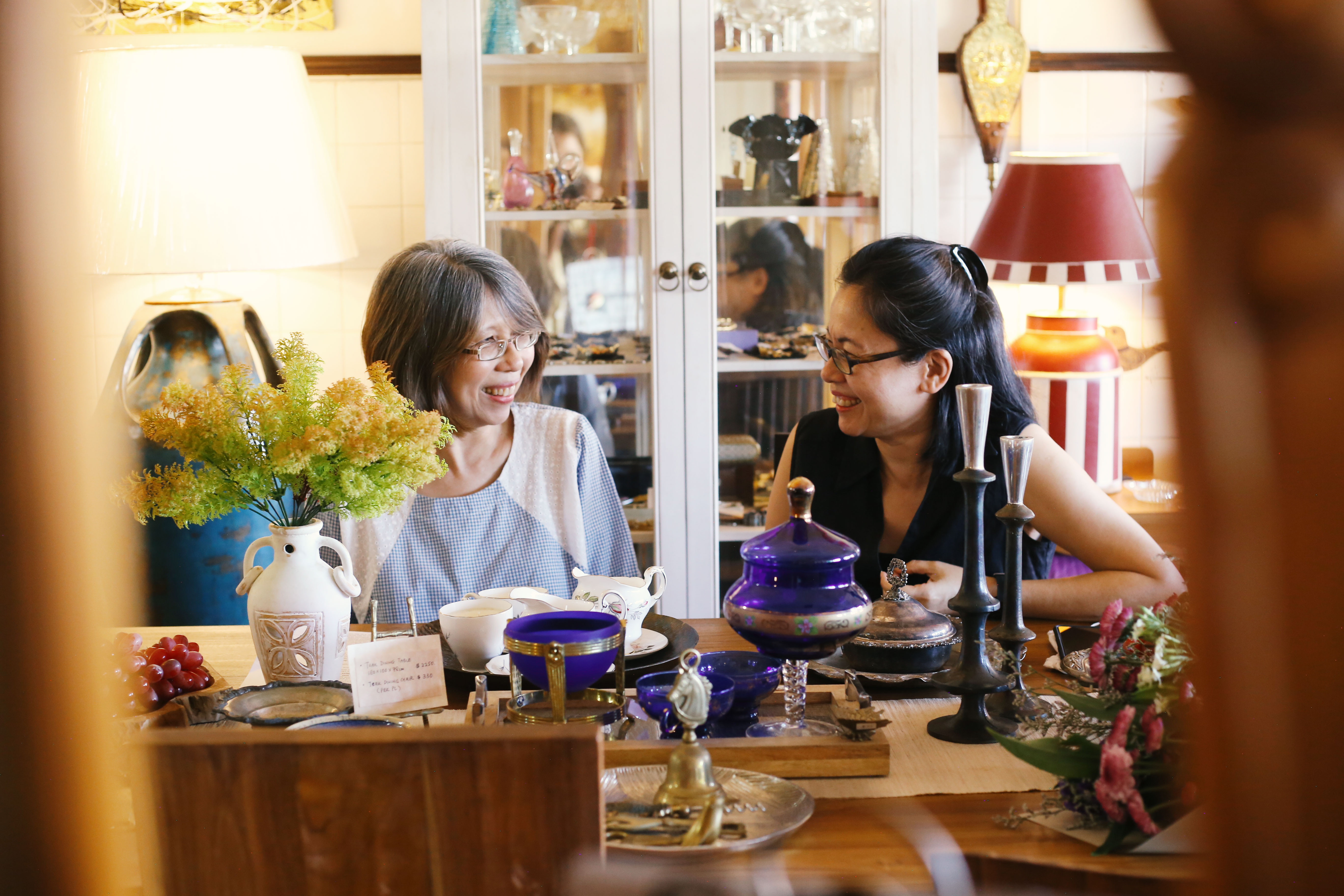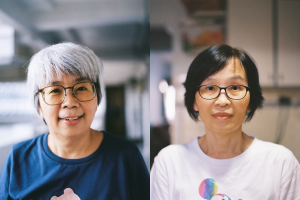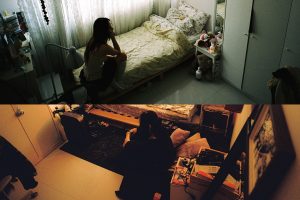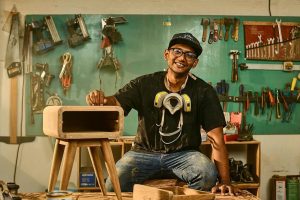Agnes and Mary speak to RICE on the struggles they face running an SME in Singapore at which no Singaporean wants to work, why it’s difficult for a business like theirs to embrace digitalisation, and the impact of Covid-19 on their shop.
Ultimately, they fear that Sisters’ Dream, like the antiques they sell, will be a thing of the past in this environment.
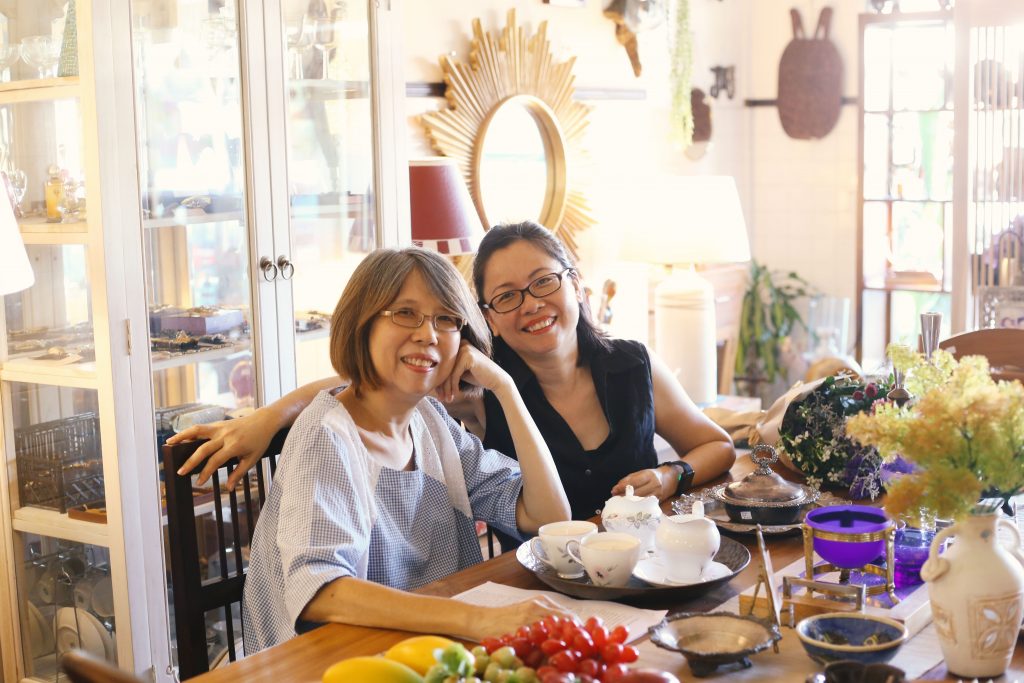
He said no. He even wanted to increase the rent by 10%.
It’s madness. It’s just not logical. There’s Covid, the business is suffering, we are all suffering. And you still want to increase our rent. How can you be so heartless?
And we have been here 18 years. With the same landlord.
If Heng Swee Keat hadn’t come up with the different budgets to help us, with the rental waivers, the shop would be dead. We wouldn’t be sitting here talking to you.
Sisters’ Dream would be gone.
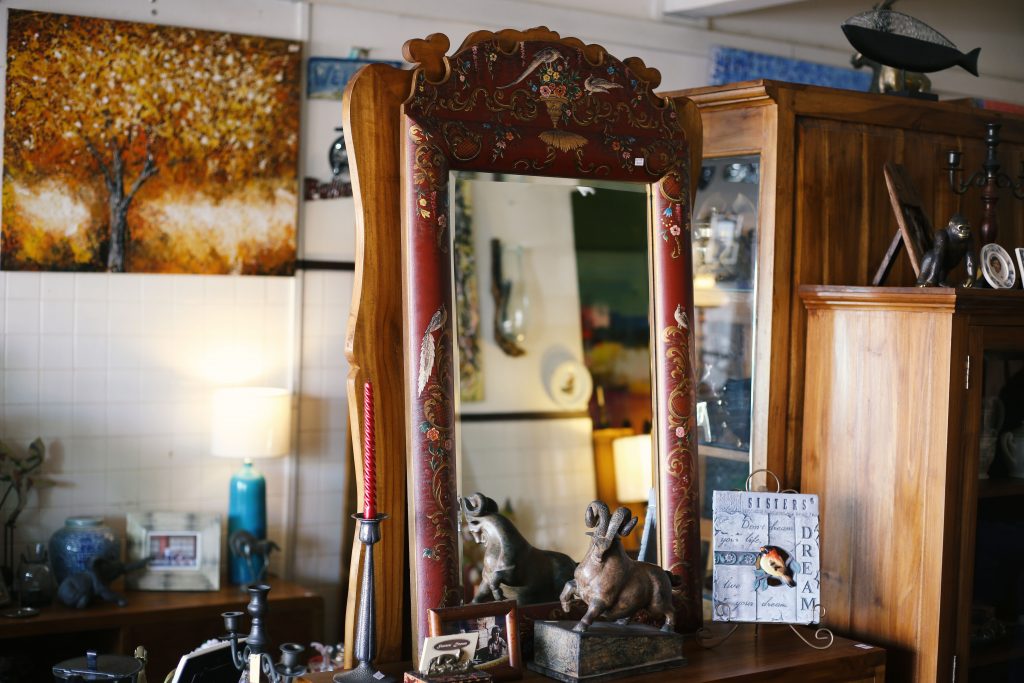
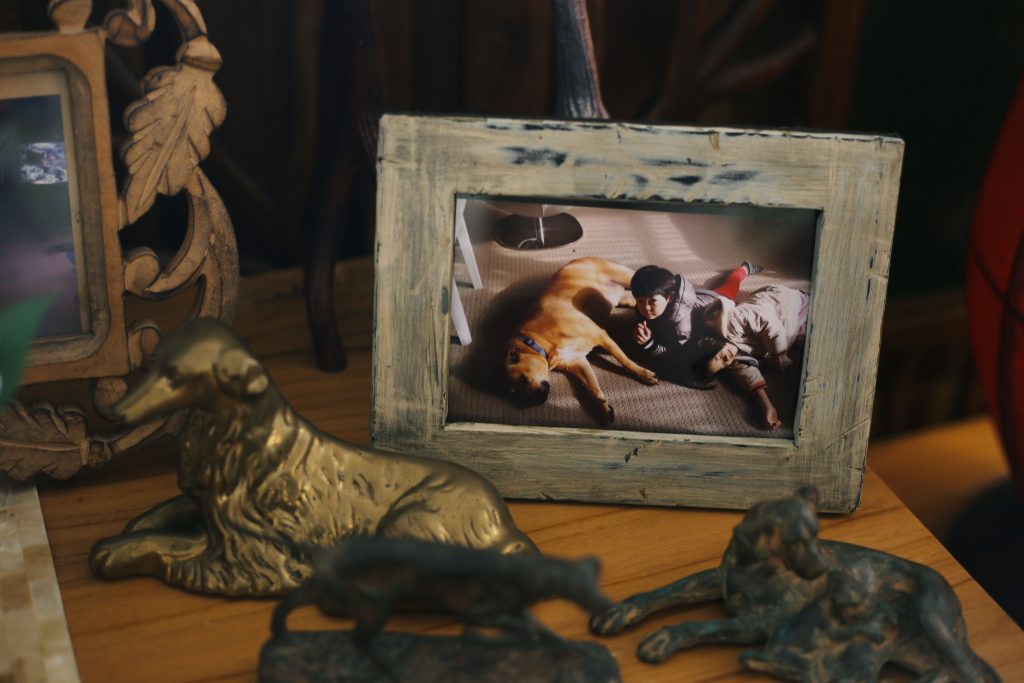
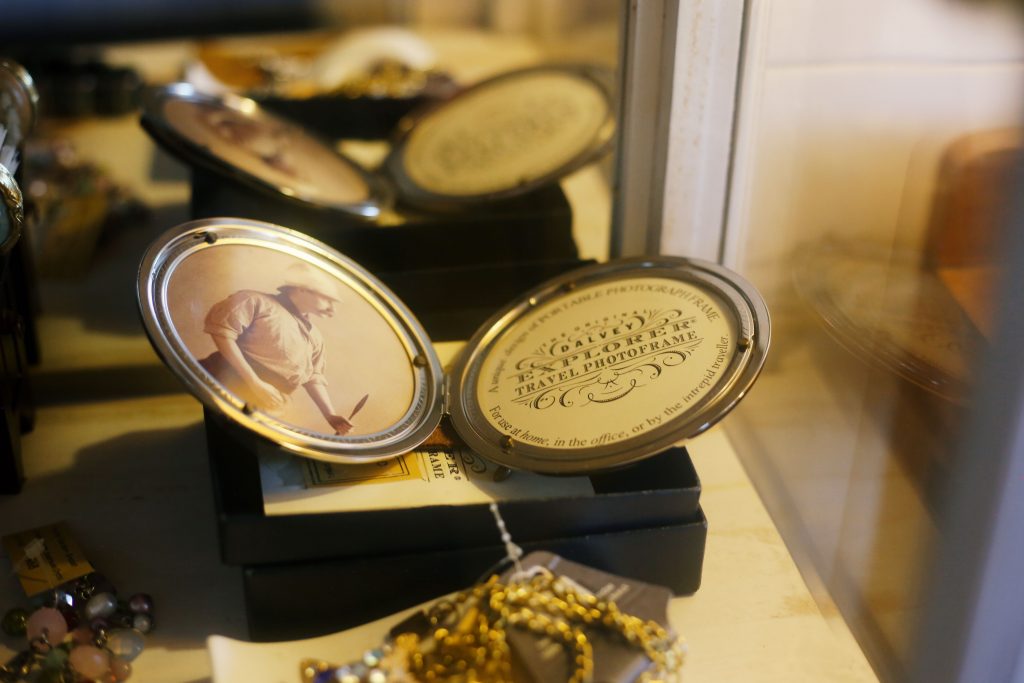
We had taken a holiday in Australia, where we went to all the little coastal towns. They had small shops selling handcrafted furniture, antiques, knick-knacks … it’s like a treasure trove. We spent hours in these shops and bought things to bring back to Singapore.
Mary’s husband suggested: “Why don’t we display the collection in our house, but people can just buy what they like?”
So we advertised in The Straits Times. In the Classified Ads. And people would come! They would buy all the things. We had to replenish stock. Eventually we decided to lease a proper shop instead of selling items out of our house.
That’s how the Sisters’ Dream business began.
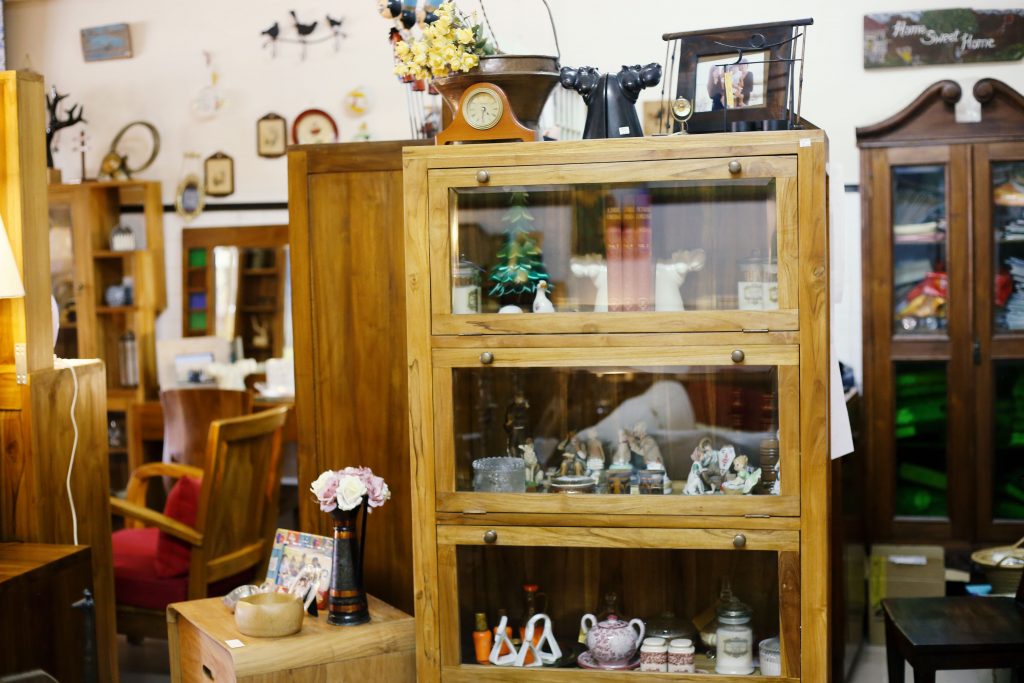
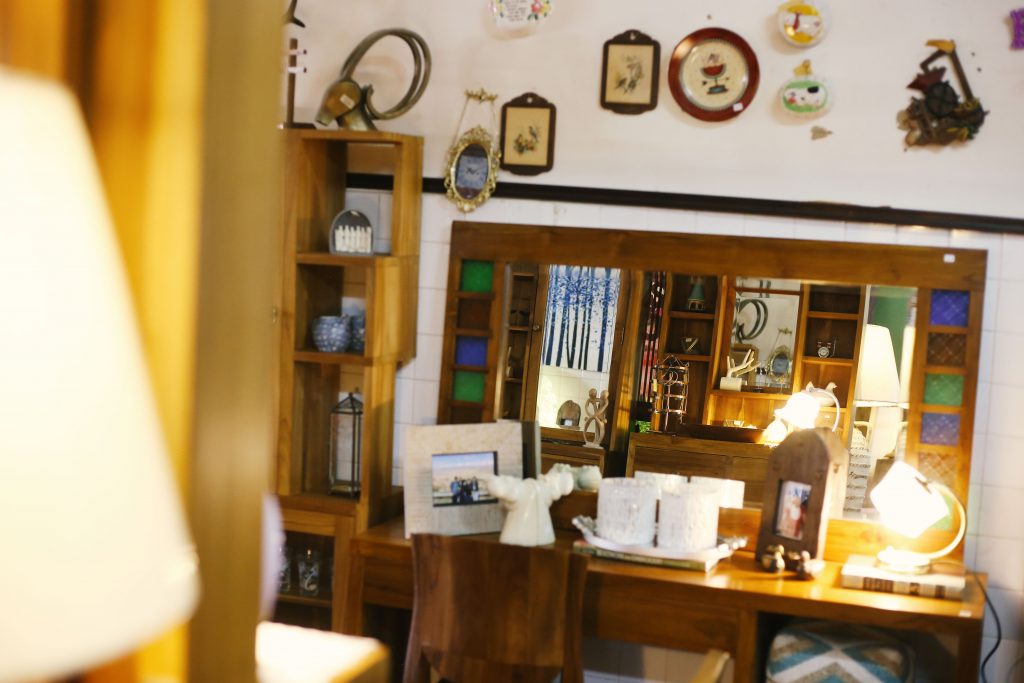
We just started sketching from physical furniture that we can see and measure … we just draw continually. Surprisingly, customers wanted to buy our designs—we were so happy.
From there on, there was no turning back. We started to design cabinets, beds … anything that the customers want, we draw for them. At that time, there was no Google. If a customer wanted a Straits Chinese cabinet, we had to refer to magazines, go to the library to borrow books, to make sure our designs were accurate.
Recently, we drew a dinosaur bed and a football bed for a customer’s two young sons.
Our furniture is all solid teak, one-of-a-kind, and made in small factories in Java: places like Solo, Jepara. They’re not like those fabricated, plywood pieces produced in the hundreds and thousands.
So the two of us, we don’t only serve customers, we design the furniture, and Mary even drives the lorry to deliver furniture to customers.
In a small business like ours, we do everything ourselves.
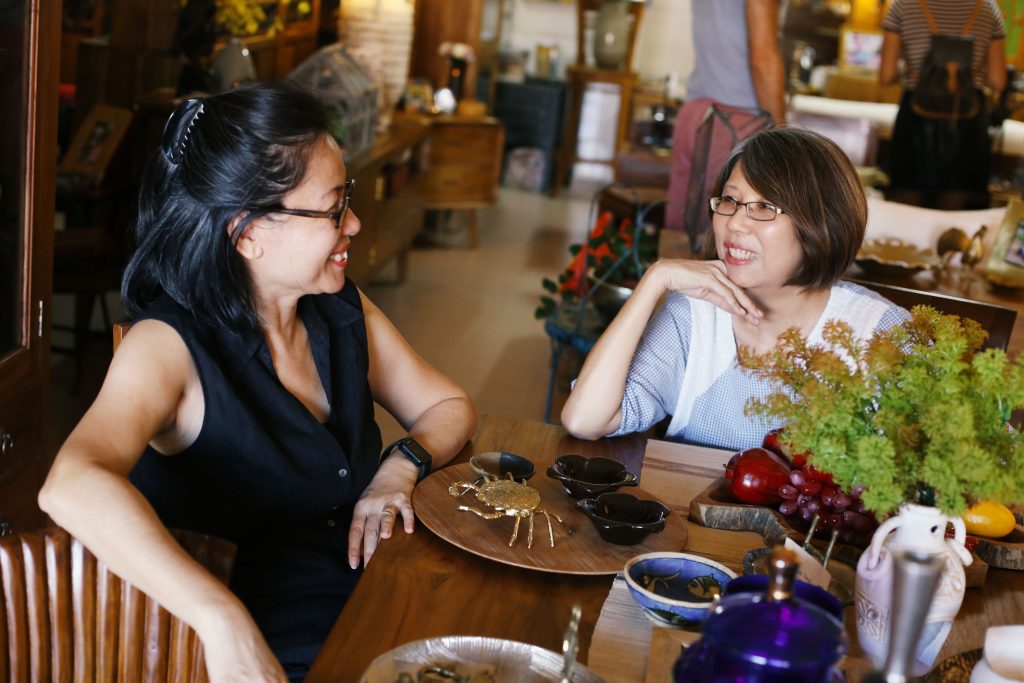
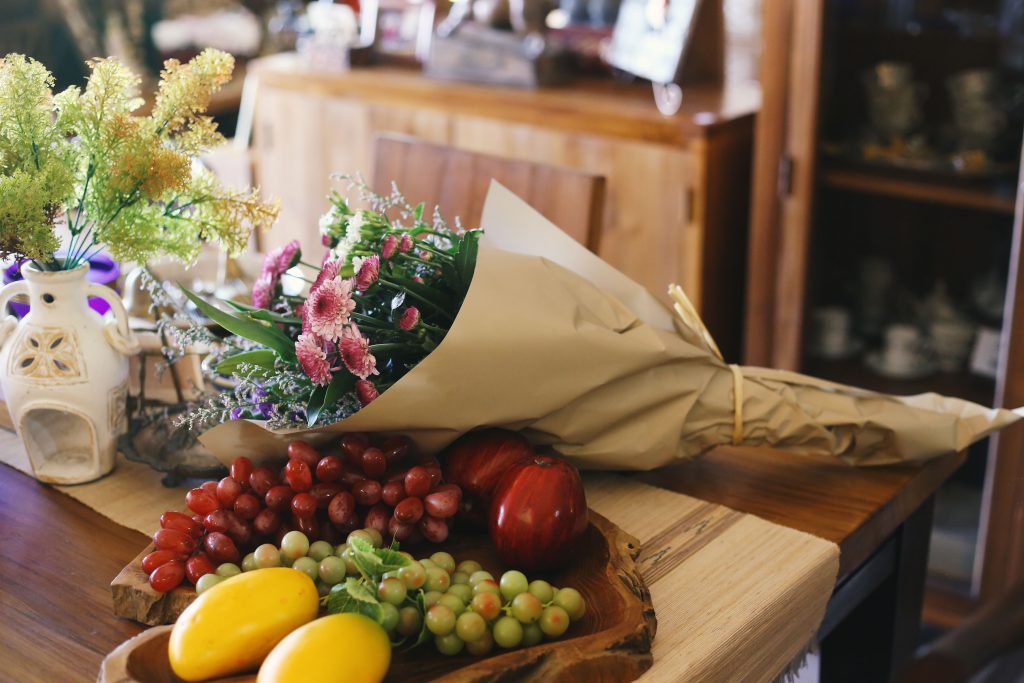
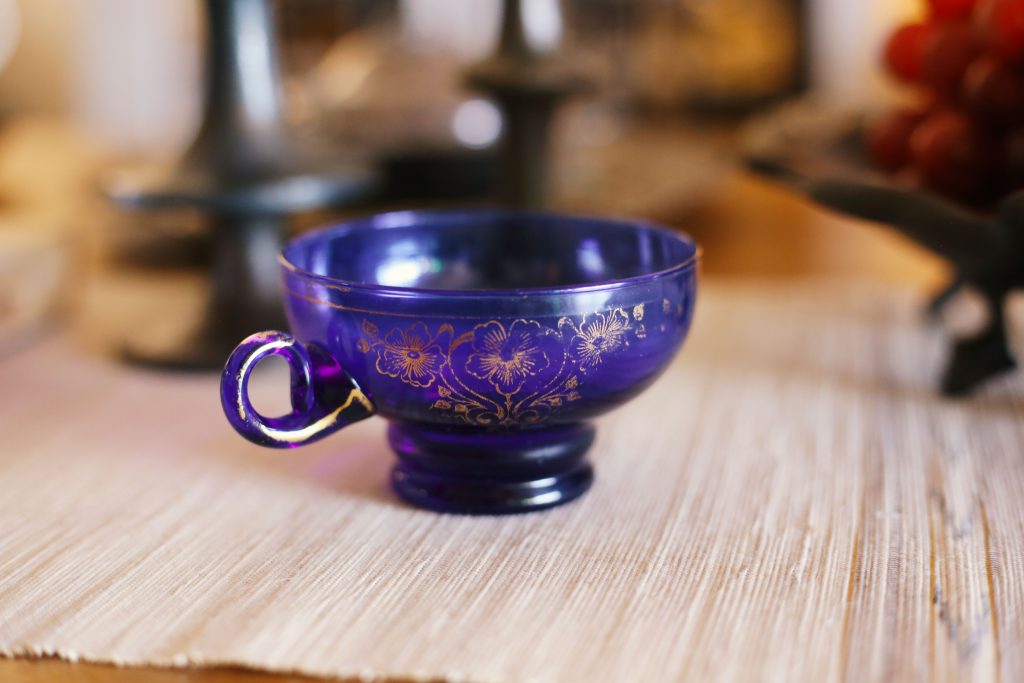
During Christmas, they will send a wreath, made from real pines. Mary’s birthday was yesterday—that’s why this customer brought flowers and kueh kueh today. When they come over, we will sit down and chat. Some even confide in us, telling us about their family problems.
And we see them grow up. There was a young couple, they just got married and bought furniture from us when they got their first house. Then the children grew up and got married. They even invited us to their wedding.
This closeness … it’s our favourite part of running the business. You don’t get it from selling things online or running a big company with many employees.
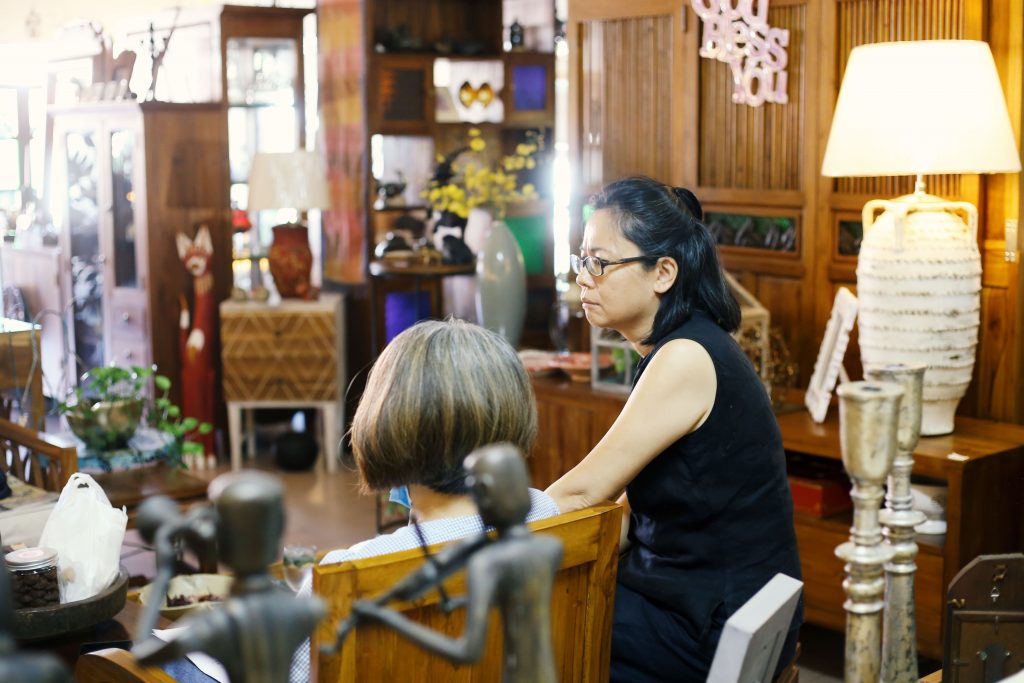
It’s very hard. We advertise for part-timers but nobody wants to work in this kind of business.
When our driver left, we had to find a new local driver. Hiring one was no joke. We have had workers who come and work for one week, try carrying one sofa or coffee table, and they say, “We try already, furniture delivery is too tough.” Then they will resign.
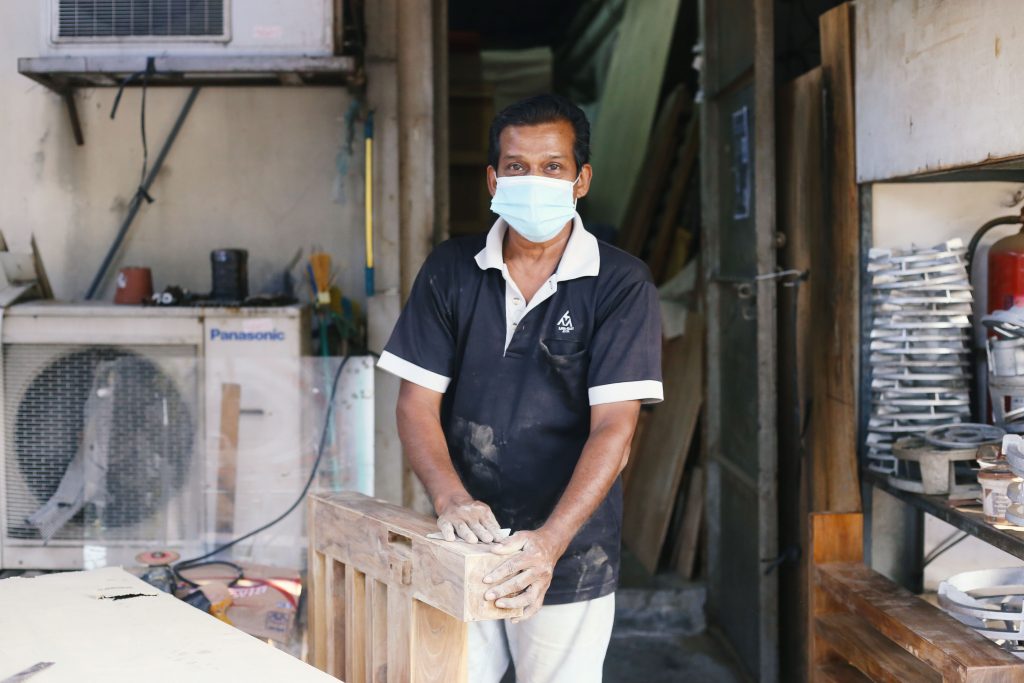
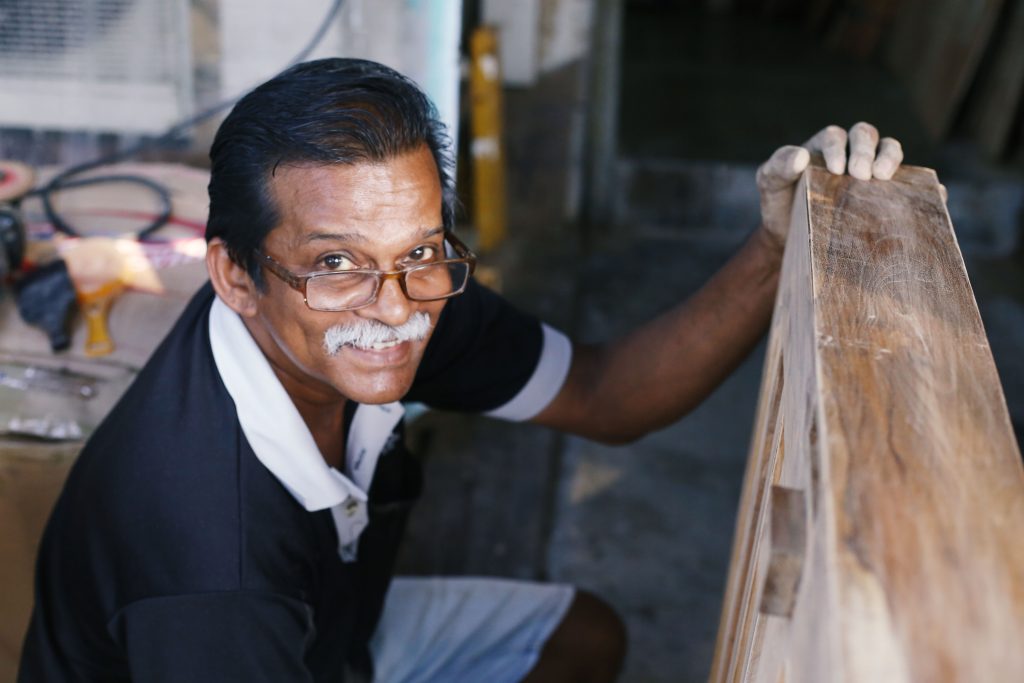
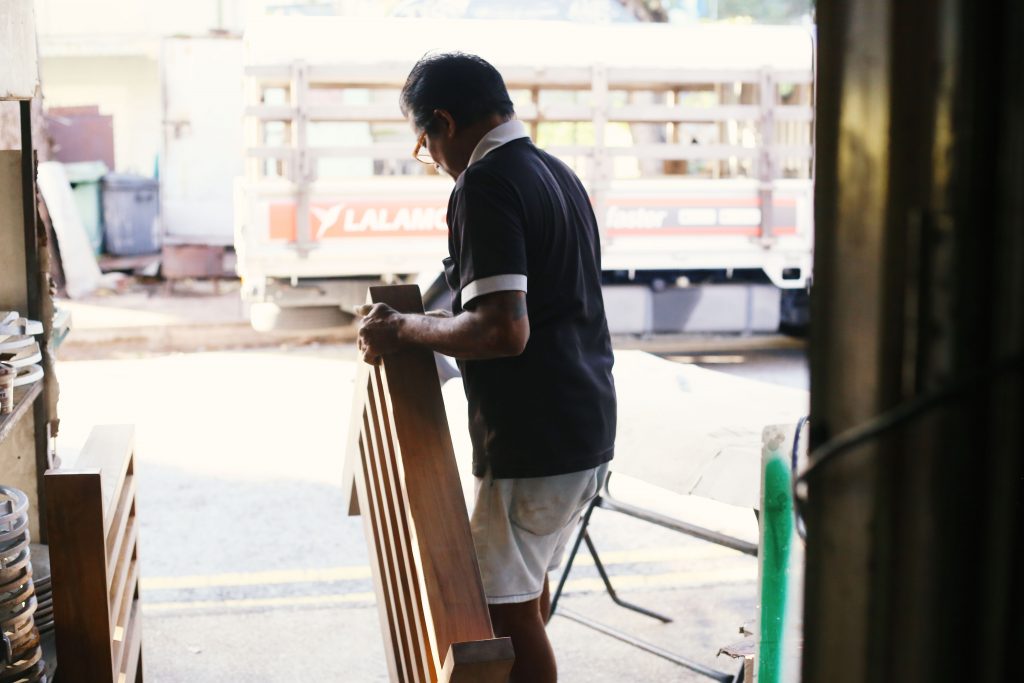
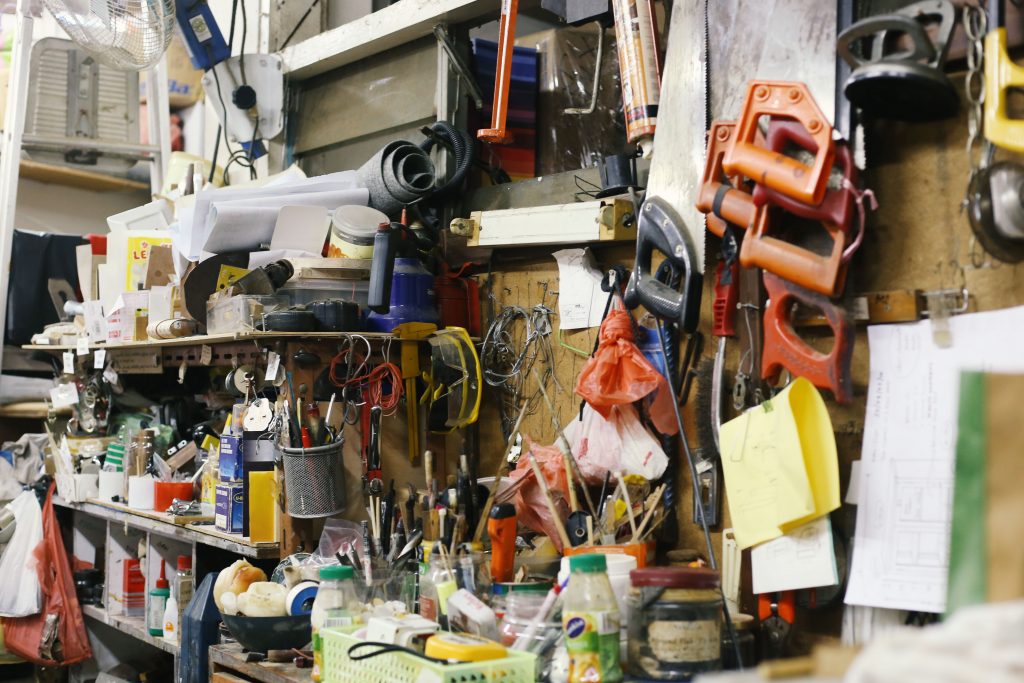
In Singapore it’s very hard to sustain such trades. Employment is one problem that the government can help us with.
Singaporeans really don’t want this kind of job.
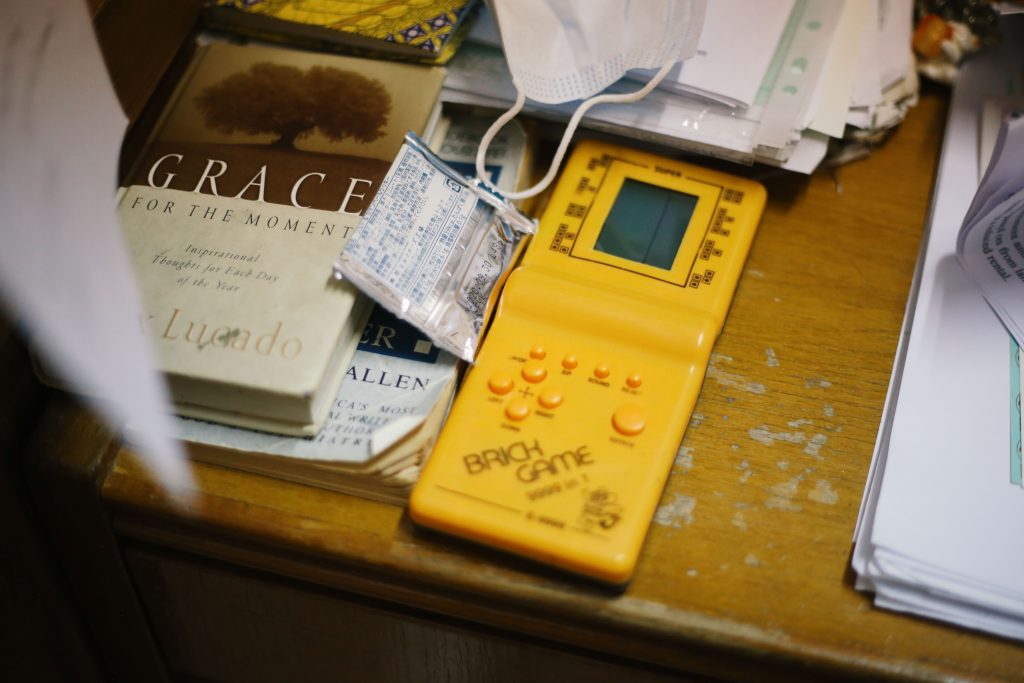
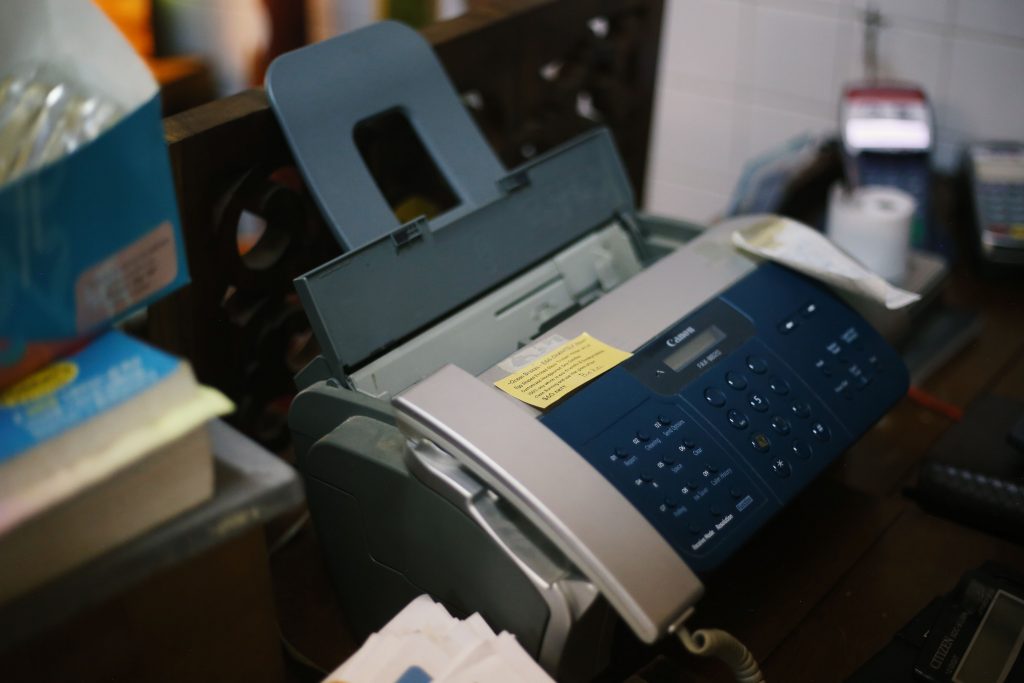
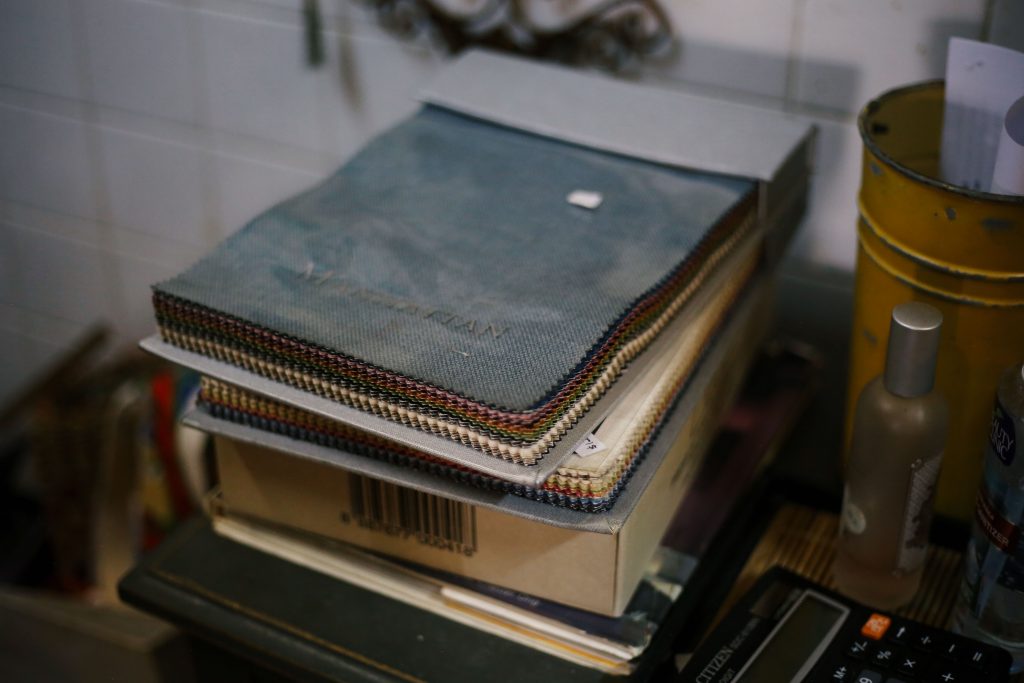
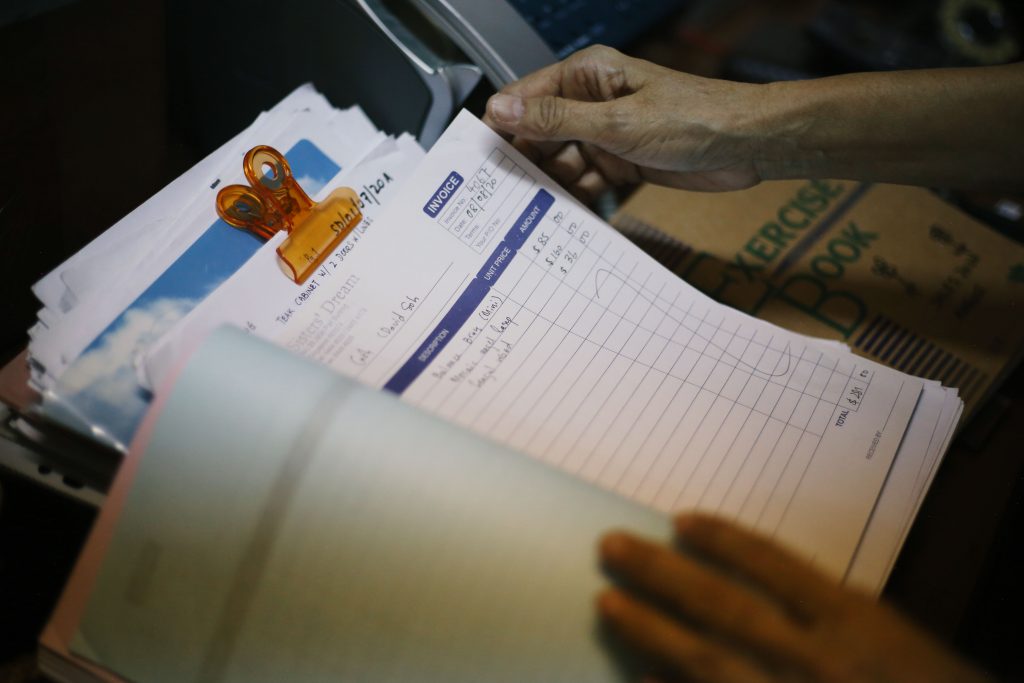
But the way we run our shop is a bit different. We bring lamps, paintings, cabinets to our customer’s house. We put it up for them. If they like it, they buy it on the spot. We do not know how this kind of business is going to go online.
To tell you the truth, I [Agnes] am a bit of a technophobe. I was a teacher for 22 years, but I had to leave the profession because of the introduction of technology. I had to use the computer to teach, and, as a HOD, give PowerPoint presentations to teachers from other schools. These were terrifying to me, and I went into very serious depression. I was in the hospital for 39 days. I couldn’t eat. Couldn’t move, couldn’t walk. I was really sick.
So digitisating the business … it’s a bit hard for us. That’s why we still use paper invoices, why our fax machine is still in regular use! Agnes uses it to send designs to our cushion maker, our glass maker …
But the young ones in our family teach us things like Instagram. Facebook is still a bit stressful … but Instagram is very simple and doesn’t intimidate us. There are no restrictions. So we started taking photos of our shop and advertising through Instagram.
Especially during Covid. We couldn’t open the shop but we came in to take photos, and posted a lot on Instagram. Customers would see the post, call us to ask about our pieces, and even buy them. That motivates us.
We know sooner or later we have to go digital.
But the biggest obstacle is Agnes. [laughter]
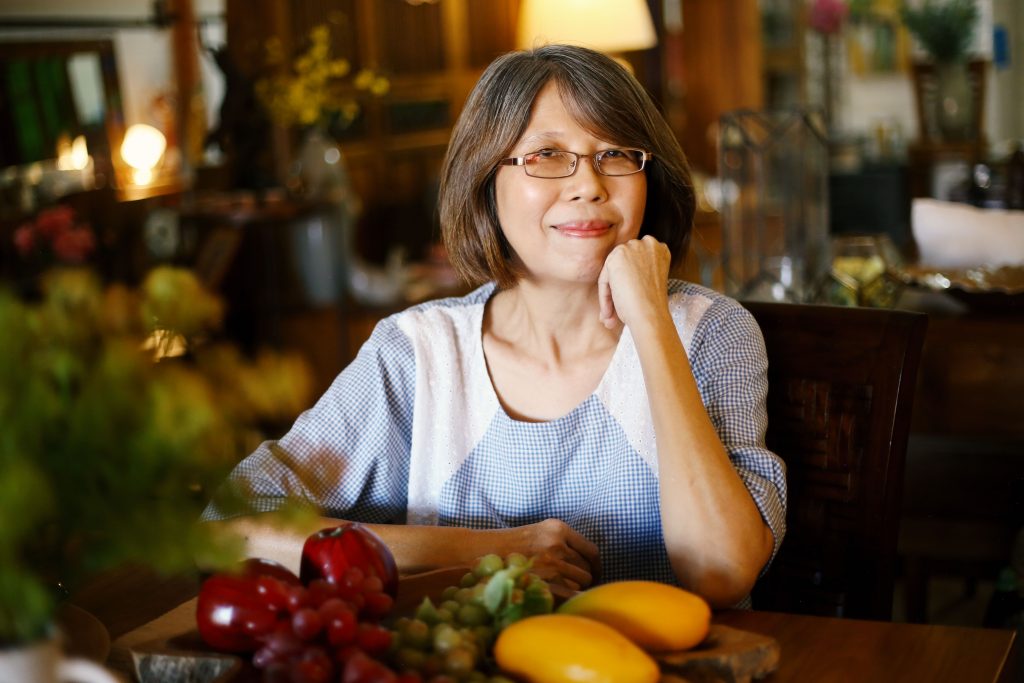
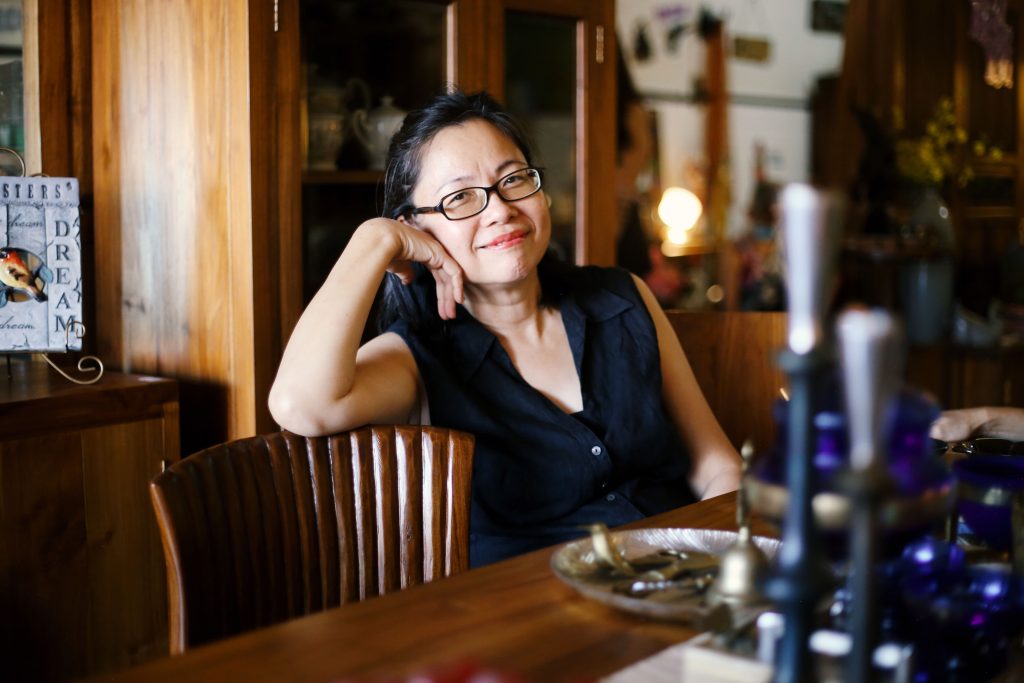
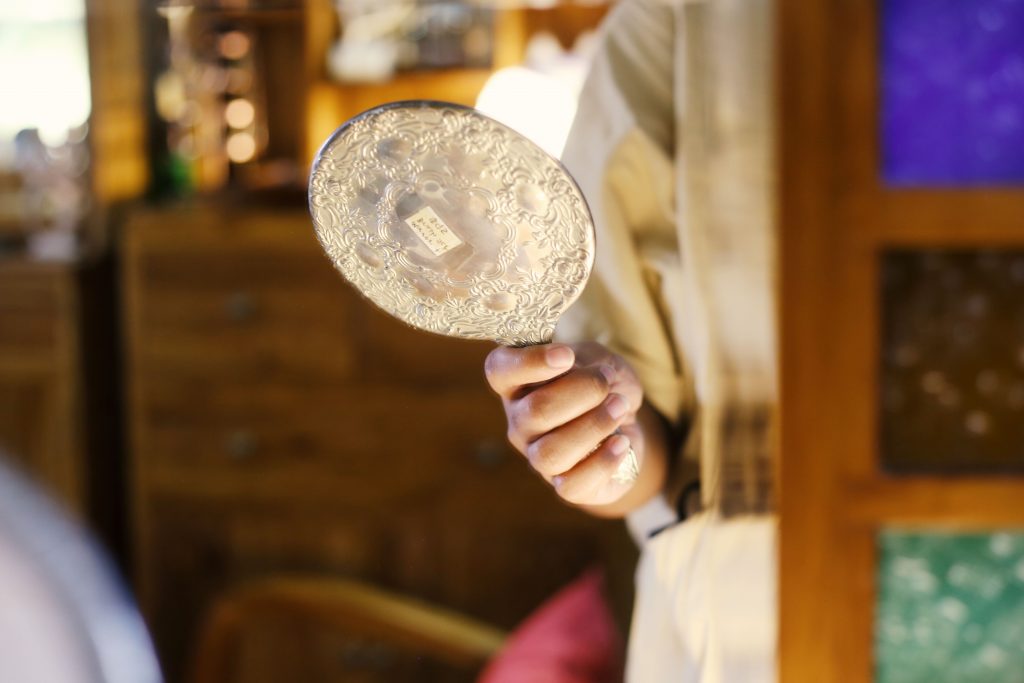

I do not know in Singapore if our government is supporting these kinds of businesses. It’s very sad. The government is always looking at companies with turnovers of millions.
But we don’t have enough revenue to do a proper advertisement. Even if there is a boom in sales because of advertisements, we can’t manage it. Our one carpenter will work until he throws in the towel because we can’t find another local carpenter to hire. And I [Mary] can’t do all the deliveries myself.
Bigger companies can get a loan from the bank at certain rates to tide them over for cash flow. An SME like ours, we don’t have that. Everything must be from our pocket or sales.
There’s no help for shops like ours. For 20 years we have not had any help, and we daren’t ask for any help from the government.
Frankly, we are not rich to run a business like that. We just can sustain ourselves, and make us feel that we are still doing something for the community. We become friends with our customers, we provide a place for people to come in and chat, we employ local people.
When we started, we didn’t think of a five-year plan, ten-year plan. We never think, wah, we must plan, expand, meet sales targets … we don’t even have a marketing strategy, that’s how sad we are.
No, we started just to try, to follow our passion. We lease one year. Then every two years. When the contract finishes, we continue.
These are our small dreams.

